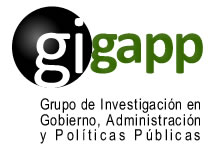Valoración del profesorado de los efectos de las políticas para la mejora de la calidad de la educación chilena
Resumen
El sistema educativo chileno cuenta con una larga tradición en la aplicación de políticas educativas dirigidas a la mejora de la calidad, entre las que destacan la libertad de elección y la autonomía como medidas para fomentar la competencia entre los centros educativos, y la rendición de cuentas como herramienta para evaluar la mejora de la calidad e informar a las familias. Estas políticas sitúan a los centros educativos y a los docentes como los principales responsables de la calidad de la educación, motivo por el que el presente artículo recoge la valoración de los docentes sobre los efectos de estas medidas en la promoción de una educación de calidad. En los testimonios de los docentes los efectos de las políticas dirigidas a la mejora de la calidad de la educación chilena se conceptualizan en términos de reducción de la noción de educación a su dimensión académica, la mercantilización del alumnado y la proletarización del profesorado.
Descargas
Derechos de autor 2018 Miriam Prieto Egido

Esta obra está bajo licencia internacional Creative Commons Reconocimiento-NoComercial-CompartirIgual 4.0.
Aquellos autores/as que tengan publicaciones con esta revista, aceptan los términos siguientes:
a. Los autores/as conservarán sus derechos de autor y garantizarán a la revista el derecho de primera publicación de su obra, el cuál estará simultáneamente sujeto a la Licencia de reconocimiento de Creative Commons Attribution-NonCommercial-ShareAlike 4.0 International (CC BY-NC-SA 4.0) que permite a terceros compartir la obra siempre que se indique su autor y su primera publicación esta revista.
Con esta licencia de acceso abierto, los lectores (usuarios) pueden:
- Compartir — copiar y redistribuir el material en cualquier medio o formato
- Adaptar — remezclar, transformar y construir a partir del material
Bajo los siguientes términos:
-
Atribución — usarios deberán dar crédito de manera adecuada, brindar un enlace a la licencia, e indicar si se han realizado cambios. Puede hacerlo en cualquier forma razonable, pero no de forma tal que sugiera que usted o su uso tienen el apoyo de la licenciante.
-
NoComercial — usuarios no puede hacer uso del material con propósitos comerciales.
-
CompartirIgual — Si remezcla, transforma o crea a partir del material, usuarios deben distribuir su contribución bajo la misma licencia del original.
-
Sin restricciones adicionales: los usuarios no pueden aplicar términos legales o medidas tecnológicas que restrinjan legalmente a otros de hacer cualquier cosa que permita la licencia.
b. Los autores/as podrán adoptar otros acuerdos de licencia no exclusiva de distribución de la versión de la obra publicada (p. ej.: depositarla en un archivo telemático institucional o publicarla en un volumen monográfico) siempre que se indique la publicación inicial en esta revista
c. Se permite y recomienda a los autores/as difundir su obra a través de Internet (p. ej.: en archivos telemáticos institucionales o en su página web) antes y durante el proceso de envío, lo cual puede producir intercambios interesantes y aumentar las citas de la obra publicada. (Véase El efecto del acceso abierto).



